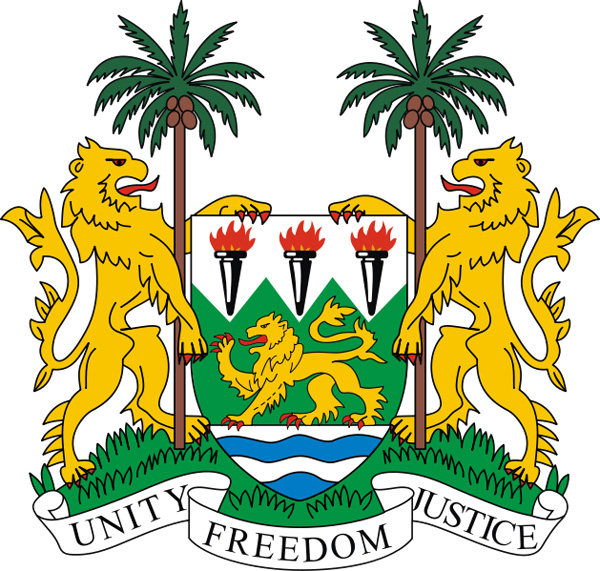The British set up a trading post near present-day Freetown in the 17th century. Originally the trade involved timber and ivory, but later it expanded into slaves. Following the American Revolution, a colony was established in 1787 and Sierra Leone became a destination for resettling black loyalists who had originally been resettled in Nova Scotia. After the abolition of the slave trade in 1807, British crews delivered thousands of Africans liberated from illegal slave ships to Sierra Leone, particularly Freetown. The colony gradually expanded inland during the course of the 19th century; independence was attained in 1961. Democracy is slowly being reestablished after the civil war (1991-2002) that resulted in tens of thousands of deaths and the displacement of more than 2 million people (about one third of the population). The military, which took over full responsibility for security following the departure of UN peacekeepers at the end of 2005, has developed as a guarantor of the country's stability; the armed forces remained on the sideline during the 2007 and 2012 national elections. In March 2014, the closure of the UN Integrated Peacebuilding Office in Sierra Leone marked the end of more than 15 years of peacekeeping and political operations in Sierra Leone. The government's stated priorities include furthering development - including recovering from the Ebola epidemic - creating jobs, and stamping out endemic corruption.
Sierre Leone is a presidential republic.
Source: CIA World Factbook
Members:
Resources
Displaying 31 - 35 of 65Crown Lands Amendment Act , 1961
An Act to amend the Crown Lands Ordinance Act
Citation Only: Sierra Leone Matrimonial Causes (Amendment) Act No. 16 of 1961
STATUTES RELATING TO LAND LAW IN SIERRA LEONE
Being an Act to provide for the criminalization of money laundering and financing of terrorism, the establishment of structures to implement this and for other related matters.
Crown Lands Ordinance, 1960 (No. 19 of 1960).
This Ordinance makes provision with respect to sale, lease or otherwise disposal of lands which belong to the Crown. Subject to the provisions of this Ordinance, the Governor on behalf of the Crown may make grants of Crown lands in such manner and subject to such conditions as may be required and as he or she may deem proper. Every grant shall be executed by the Minister or a public officer authorized by him in that he be expressed to be made in conformity with the provisions of this Ordinance.





